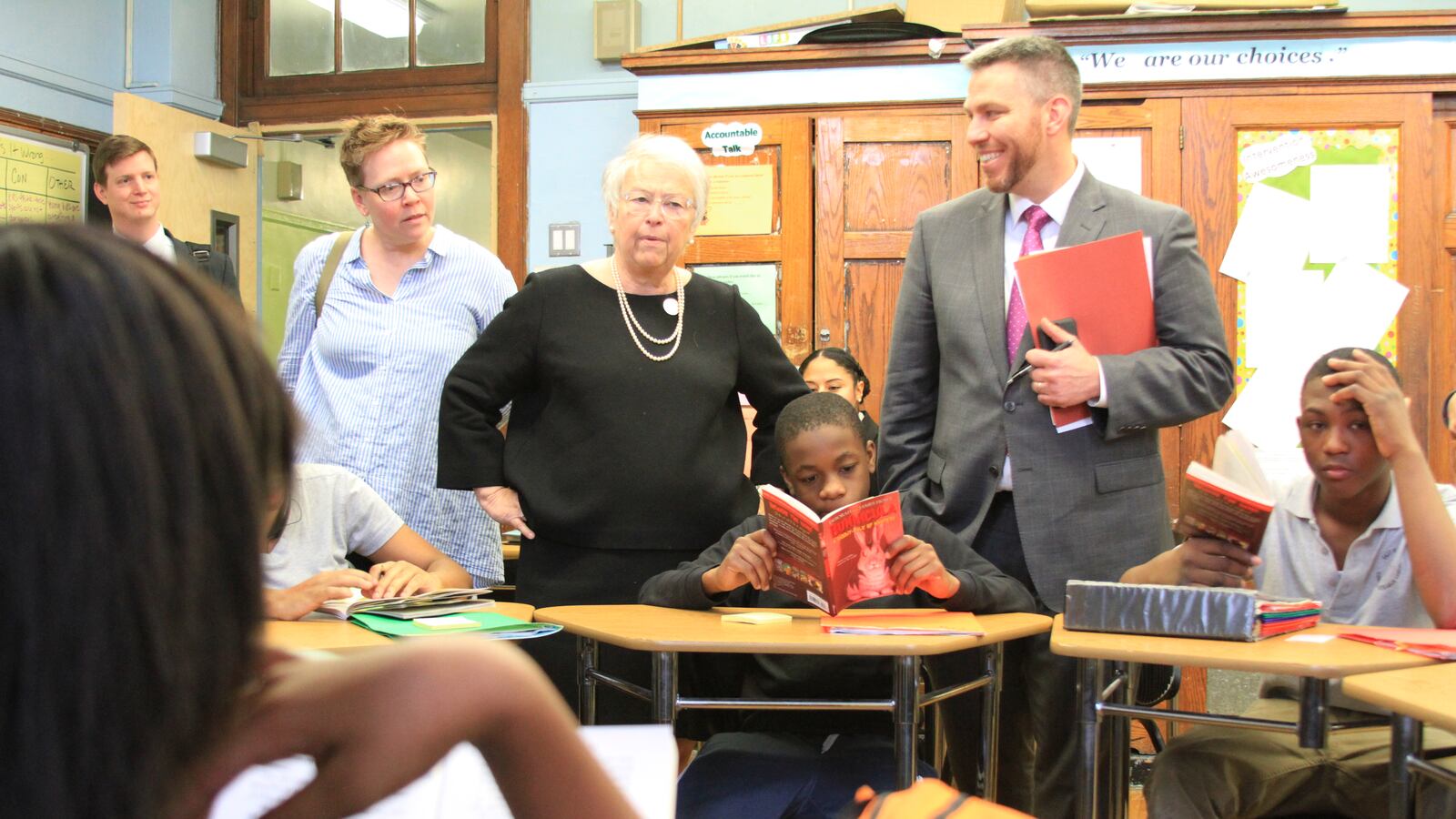In New York City, an unexpected fight has flared up between proponents of social service-filled “community schools” and the administration of Mayor Bill de Blasio, one of the nation’s most outspoken champions of those schools.
The skirmish centers on a dozen community schools that used state grants to finance after-school programs, tutoring, and student health services over the last three years. The city has not yet promised to pick up the tab for the schools when their $6 million expires at the end of June — even though state officials said Monday that the city could use a pool of state funds to do so.
That has frustrated advocates who say those 12 community schools, whose programs date to 2013, were at the forefront of an approach that de Blasio is now trying to establish in nearly 130 other schools across the city. It also has stoked fears that his administration might let the funding lapse at other community schools in the future just as new programs are taking root.
On Tuesday, they wielded a new weapon to make their case: a just-published report that pulls together multiple studies showing that school-improvement programs require between five and 10 years to take hold. The implication is that if the city fails to renew the funding for those dozen schools, it will be ignoring clear research that says the schools need time for their reforms to flourish.
“It takes longer than three years — and the research supports that,” said Yolanda McBride, director of public policy at The Children’s Aid Society, which works with six of the schools. “We’re pushing the [de Blasio] administration to acknowledge that.”
The funding fight is just the latest instance of tensions arising between community-school advocates and an administration that has promoted that education model.
After de Blasio unveiled in 2014 his “School Renewal” program to help academically struggling schools partly by flooding them with services for students and their families, some advocates expressed doubt about using the community-school model as a turnaround strategy. And last fall, they staged a rally where they (successfully) called for the city to publish a clear policy to guide new community schools.
The current funding dispute touches on a deeper concern among advocates that the city will treat the community-school approach as a quick fix for struggling schools rather than a permanent model for all its schools.
Their fears are rooted in the Renewal program’s timeline: The 94 schools that were originally part of it were given just three years to make significant academic gains or face closure. (In fact, the city has already announced plans to shutter three of the schools.)
That requirement, and a parallel one at the state level, “reflect maybe political eagerness and expediency, but they don’t reflect research on how school improvement works,” said Megan Hester, a staffer at the Annenberg Institute for School Reform and an organizer of the Coalition for Community School Excellence, a new alliance of dozens of advocacy groups and social-service agencies in New York City that work with community schools. The group formed last fall partly to ensure that the community-schools initiative is sustained beyond this administration.
The report commends the city for adopting the community-school model, which it says is an effective strategy for improving schools. But researcher Michelle Renée Valladares said that demanding those gains happen too quickly can undermine a school’s transformation by tempting teachers to focus on test prep. When schools make more structural changes, like overhauling their teaching, they typically see their test scores rise after five years, she said.
“If New York City is saying they have to show gains on their math and English test scores in three years, that’s absolutely bad science,” said Valladares, associate director of the National Education Policy Center at the University of Colorado at Boulder, which published the report.
But the de Blasio administration faces enormous pressure from critics, lawmakers, and state educational officials to show that its massive investment — the Renewal program is projected to cost nearly $839 million over five years — is having an impact.
In response, the city education department says that its efforts will result in short-term academic gains by next year but also lasting changes at the troubled schools.
It has replaced the principals at many of the schools, given them new classroom materials, and provided additional training for its teachers, a spokeswoman pointed out. It has also paid for each school to partner with a social-service agency, hire a full-time community school director, and add an extra hour of instruction — though those reforms are more tenuous, since they rely on funding that could vanish when de Blasio leaves office.

